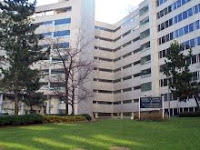 |
Baltimore Division courthouse.
Source: US District Court of Maryland |
Lawyers for Barry Landau have filed a motion to suppress the evidence the government obtained from a search of Landau’s home. Landau is charged in Maryland federal district court with conspiracy and theft of major artwork. See here for background.
Landau is scheduled for trial in February and is presumed innocent unless found guilty beyond a reasonable doubt. His co-defendant, Jason Savedoff, entered a guilty plea earlier this year. Find more information at this link.
Federal agents executed a search warrant on July 12, 2011, reportedly seizing historical documents from Landau’s New York City apartment. But Landau claims, through his counsel, that the search warrant lacked sufficient probable cause and, therefore, the evidence seized cannot be admitted by the government at trial.
The motion to suppress contends that police observed Savedoff acting suspiciously at the Maryland Historical Society (MHS), and it was Savedoff who was found with historical documents after being arrested. Despite the fact that Landau was not seen to have acted suspiciously and that Landau did not have possession of any historical documents, police unlawfully placed Landau under arrest and acquired a search warrant based on specious facts, the motion argues. The motion to suppress explains:
“The affidavit provided to Judge Katz in support the respective applications for search and seizure warrants failed to establish probable cause to permit the searches authorized. Because there was no evidence recovered from Mr. Landau, and no one observed him stealing any documents or acting inappropriately while at the MHS and prior to his arrest, there was no probable cause to allow a search of his residence and all evidence seized at this apartment pursuant to the search warrant should be suppressed.”
©2010-2022 Cultural Heritage Lawyer Rick St. Hilaire. Content discussing cultural heritage law, art law, looted antiquities, stolen artifacts, and museum risk management that is general information only, not legal advice.


